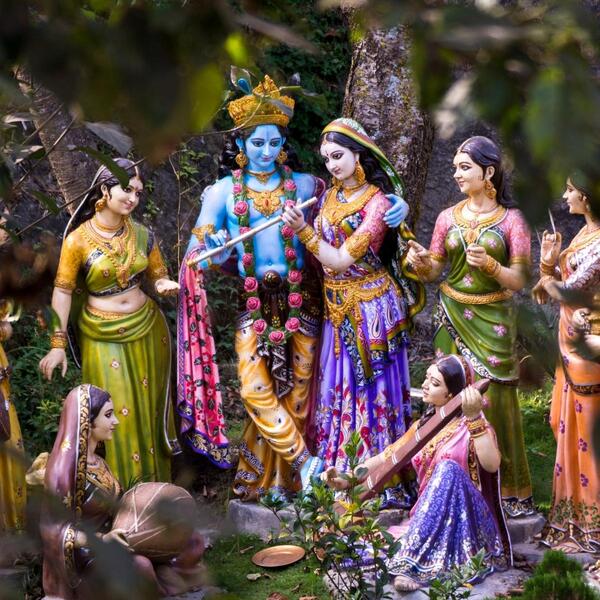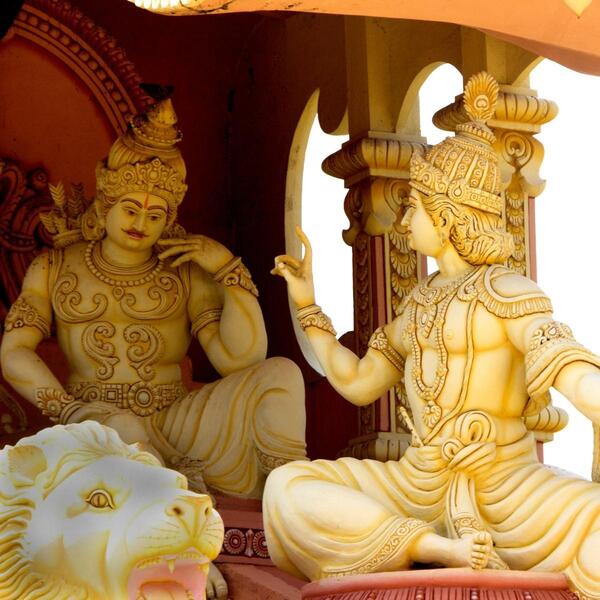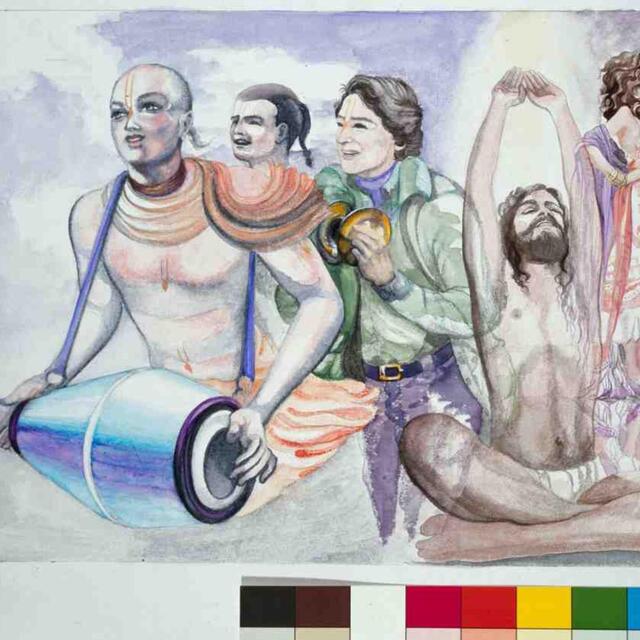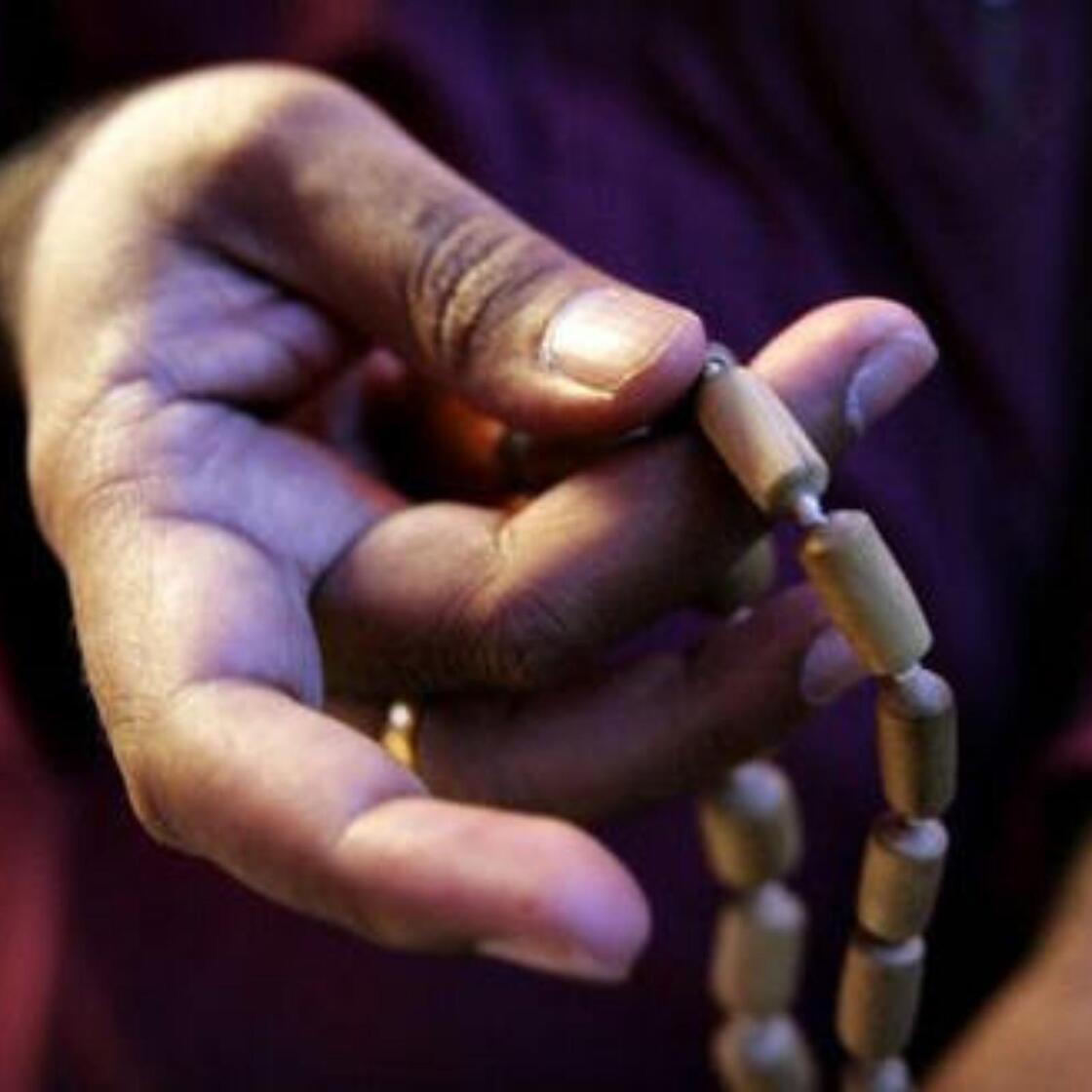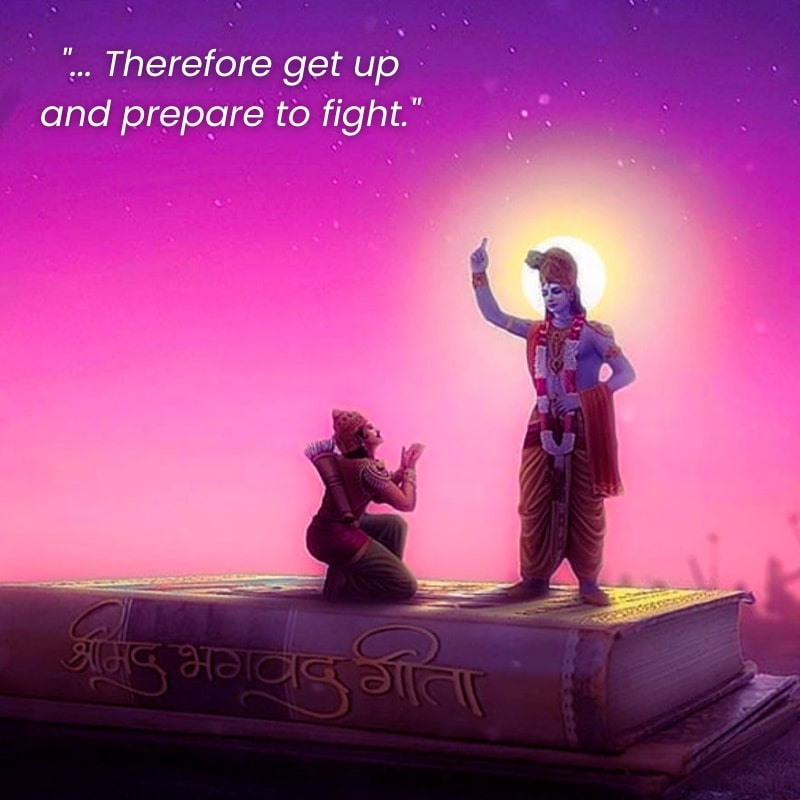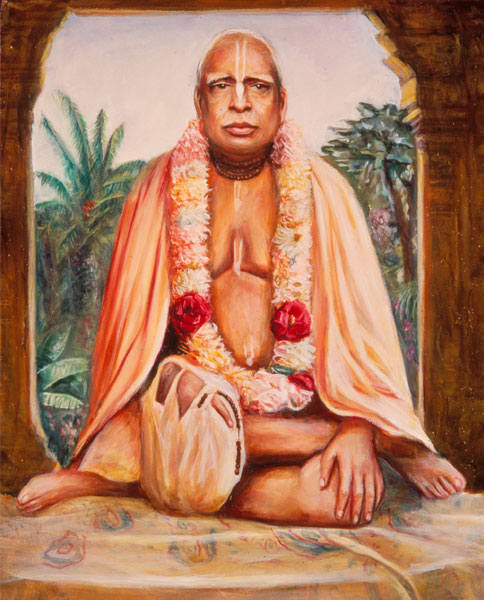General notion about God is that He is all powerful, fully independent, complete in all respects, source of everything, etc. In fact, God himself declares this about Himself in the seventh chapter of Bhagavad-gita:
mattah parataram naanyat
kincid asti dhananjaya
mayi sarvam idam protam
sutre mani-gane iva
“There is no truth superior to Me. Everything rests upon Me, as pearls are strung on a thread.” Not only in this verse but in many other verses of Bhagavad-gita, Krishna declares Himself as the Supreme Personality of Godhead. Having established himself as the Supreme Lord, Krishna says the following :
yat karoshi yad ashnaasi
yaj juhoshi dadaasi yat
yat tapasyaasi kaunteya
tat kurushva mad-arpanam
“Whatever you do, whatever you eat, whatever you offer or give away, and whatever austerities you perform—do that, O son of Kunti, as an offering to Me.” (Bhagavad-gita 9.27) This instruction is meant for all the people of world and not just for Arjuna because Arjuna was representing them all.
One may question that why God (Lord Krishna) should demand from us? Why does God demand results of our activities for him? Is God selfish?
There is an intrinsic assumption, in asking these questions, that when we offer something to Krishna He is the only enjoyer of our offerings. Or Krishna is demanding from us for only His benefit. But is it so? Krishna informs us in Bhagavad-gita 15.7:
mamaivaamsho jiva-loke
jiva-bhutah sanaatanah
“The living entities in this world are My eternal fragmental parts.” All the living entities, including us, are part and parcel of Krishna. So when we offer something to Krishna, it is offered to all living entities, including us. Srila Prabhupada explains, "When food is offered to stomach it is actually offered to all the parts of the body. We need not to separately offer it to hands, legs, eyes, nose, etc. If we try to feed these parts of the body separately then we will surely fail in our attempt." As tiny part and parcel of God, our capacity to directly enjoy the result of our action is very limited. If we want to enjoy the result unlimitedly then we need to enjoy it through unlimited God. As the hand can enjoy the food by offering it to stomach, we can enjoy the result of action by offering it to God.
Often people think that we are the rightful enjoyers of results of our hard work. This resembles a thief’s claim that he is the rightful owner of what he stole by working hard. We come to this world empty handed. Nothing belongs to us and by our so called hard work we take possession over the property of God. Thus our every action to acquire God's property for our own gratification is culpable. If we want to absolve ourselves of the sin of being a thief, we must offer the result of action for the purpose of God. As Krishna says in Bhagavad-gita 3.9:
yagnarthaat karmano 'nyatra
loko 'yam karma-bandhanah
tad-artham karma kaunteya
mukta-sangah samaacara
“Work done as a sacrifice for Vishnu has to be performed; otherwise work causes bondage in this material world. Therefore, O son of Kunti, perform your prescribed duties for His satisfaction, and in that way you will always remain free from bondage.”
Thus Krishna’s demanding can be considered his causeless mercy for two reasons: He is showing us the right way to enjoy the results our actions and He is reminding us of our duty to free us from bondage of Karma.

